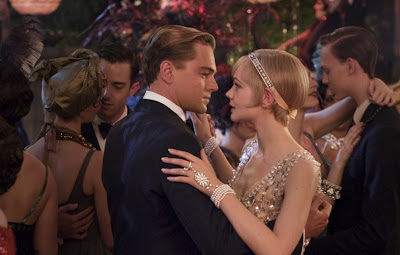 |
| Magnolia Pictures |
Growing up in Connecticut, my school or family would take a
trip every few years to the Mystic Aquarium, where we’d see a rainbow of fish,
an octopus that would never come out of hiding and, most importantly, the
beluga whales. These whales, pearl white and somewhat bulbous, would swim
around in their small lake, sometimes passing by the glass with a fin waving,
and they seemed a bit lonely and a bit bored.
They wouldn’t do shows – that arena was reserved for the sea lion - but
even then, those Mystic shows paled in comparison to what they’d deliver at the
king of all aquariums, SeaWorld. Shamu
the whale and all his friends, jumping through hoops and flipping trainers
through the air; it all seemed so fantastical, on television and in magazines,
and I wondered if I’d ever be able to see one of those killer whales up
close. After watching Blackfish, a documentary highlighting
the dark secrets SeaWorld has swept under the rug over the years, specifically
about its orca program, I’m glad I never did.
Directed by Gabriela Cowperthwaite, Blackfish is an extraordinary journalistic examination of the
maritime theme park chain SeaWorld, most famous for its orca shows and
especially the park “mascot” Shamu the whale.
While claims of education and research have often been made at both
SeaWorld’s whale-trainer “spectaculars” and through the party line,
Cowperthwaite digs deeper into the company’s most famous program and finds
something shockingly sinister. Through interviews
with orca experts, former SeaWorld trainers, and others involved with orcas at
various levels, she uncovers capturing and training methods employed towards
these creatures that are nothing short of inhumane, if not illegal. While the narrative of the documentary weaves
through different orca tales, both inside and outside of captivity, it anchors
the film on one particular whale – Tilikum, a male killer whale responsible for
the deaths of three people, including Dawn Brancheau, one of the most respected
whale trainers in the business. By
following his life from his initial capture off the coast of Iceland to his sad
state of affairs at SeaWorld Orlando, we see the profoundly torturous and even
deadly effects captivity has not only on these highly intelligent creatures but
the trainers that dare to go into the water with them.
One of the most important facets of the film is the
interviews, and while some documentaries, especially those going after
corporations, might employ those that have a vendetta or a grudge against said
corporation, the trainers and the scientists in Blackfish are just as much if not more for the safety and
protection of the orcas as they are against the tactics used by SeaWorld. Great length is gone to show the animals not
only in captivity but out in the wild, some gorgeously shot and enchanting
scenes, and that distinction in demeanor, nature, and kinship makes the
incidents at various theme parks that much more shocking. On that end of the spectrum, what makes Blackfish truly stand out is the startling
amount of video evidence, the somewhat-morbid yet utterly fascinating highlight
of the film. Other documentaries
might’ve used dramatic reenactments of the orca attacks, but this film provides
the actual footage from parks and eyewitnesses, taking the suspense to a whole
other level. Some footage cuts away
before any true gore is shown, but others keep rolling for a harrowing amount
of time, reminding the viewer of the danger these trainers face every day; one
particular sequence in the latter half of the film is nothing short of
mesmerizing, seeming so much longer than it actually is, the kind of “I can’t
believe it” scene that is frightening because it’s so very real. While there are certainly some moments of
beauty, it’s the moments of terror that are the most captivating part of the
film.
A good documentary sticks, lingers around in the back of
your mind for days after you’ve left the theater or your television or your
laptop, and Blackfish passes that
test with flying colors. The message
here is one we’ve all heard before, the profound ignorance the human race holds
thinking it can or should “control” nature; we’ve seen it in countless nature
documentaries such as Grizzly Man and
Project Nim. There’s something a bit different about Blackfish, though, something a bit more
pointed. From the opening scene to
almost the very end, the film is a specifically calculated, piece by piece
dissection and destruction of SeaWorld, something that might’ve become preachy
if the whole project wasn’t executed with ruthless finesse. From the comprehensive research to the
emotional interviews to the shocking videos, the film is damn near flawless as
a journalistic expose. It made me upset,
it made me angry, and it made me want to hurl bricks at the mega-aquarium’s
entrance. It’s a film that demands to be
seen, and rightfully so. With any luck, this
tale of majestic orcas and criminal companies will travel to as many eyes and
ear as possible.
Grade: A













